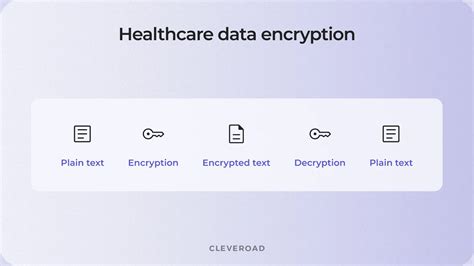Intro
Discover the evolution of healthcare privacy and the measures to protect patient data. Learn about the impact of HIPAA, electronic health records, and cybersecurity threats on medical data security. Stay ahead of the curve with the latest trends and best practices in safeguarding sensitive patient information and maintaining confidentiality in the digital age.
The healthcare industry has undergone significant transformations in recent years, driven by advances in technology, changing patient needs, and evolving regulatory landscapes. One critical aspect of healthcare that has garnered increasing attention is patient data privacy. As healthcare providers, insurers, and researchers rely more heavily on digital systems to collect, store, and share patient information, the need to protect sensitive data has become a pressing concern.

The importance of safeguarding patient data cannot be overstated. Patient health information is highly sensitive, and unauthorized access or disclosure can have severe consequences, including identity theft, financial loss, and reputational damage. Moreover, breaches of patient data can erode trust in the healthcare system, compromising the provider-patient relationship and potentially affecting patient outcomes.
The History of Healthcare Privacy
The concept of healthcare privacy dates back to ancient civilizations, where physicians were expected to maintain confidentiality about their patients' conditions. However, it wasn't until the 20th century that healthcare privacy became a formalized concern. In the United States, the 1970s saw the introduction of federal laws, such as the Privacy Act of 1974, which aimed to regulate the collection, use, and disclosure of personal information.
In the 1990s, the healthcare industry witnessed a significant shift towards electronic health records (EHRs) and digital data storage. This transition increased the risk of data breaches and unauthorized access, prompting the need for more robust privacy protections. The Health Insurance Portability and Accountability Act (HIPAA) of 1996 marked a significant milestone in healthcare privacy, establishing national standards for the secure handling of protected health information (PHI).
Key Components of Healthcare Privacy
Healthcare privacy encompasses several critical components, including:
Confidentiality
Confidentiality refers to the duty of healthcare providers to maintain the secrecy of patient information. This includes ensuring that only authorized individuals have access to patient data and that all interactions with patients are conducted in a private and secure manner.
Integrity
Data integrity is essential in healthcare, as inaccurate or incomplete information can have serious consequences for patient care. Healthcare providers must ensure that patient data is accurate, up-to-date, and protected from unauthorized alterations or deletions.
Availability
Availability refers to the accessibility of patient data when needed. Healthcare providers must ensure that patient information is readily available to authorized individuals, while also protecting it from unauthorized access or disclosure.
Accountability
Accountability is critical in healthcare privacy, as it ensures that individuals and organizations are responsible for their actions. Healthcare providers must establish clear policies and procedures for handling patient data and hold individuals accountable for any breaches or unauthorized disclosures.

Threats to Healthcare Privacy
Despite the importance of healthcare privacy, several threats compromise the security of patient data. Some of the most significant risks include:
Cyberattacks
Cyberattacks, such as hacking, phishing, and ransomware, pose a significant threat to healthcare privacy. These attacks can result in unauthorized access to patient data, data breaches, and disruptions to healthcare services.
Insider Threats
Insider threats, including employee negligence or intentional wrongdoing, can compromise patient data. Healthcare providers must implement robust access controls, monitoring, and training programs to mitigate these risks.
Third-Party Risks
Third-party vendors, contractors, and partners can also pose a risk to healthcare privacy. Healthcare providers must carefully vet and monitor third-party relationships to ensure compliance with privacy regulations.
Best Practices for Protecting Patient Data
To safeguard patient data, healthcare providers should implement the following best practices:
Implement Robust Access Controls
Access controls, such as role-based access and multi-factor authentication, can help restrict access to patient data.
Conduct Regular Security Audits
Regular security audits can help identify vulnerabilities and ensure compliance with privacy regulations.
Provide Employee Training
Employee training programs can educate staff on the importance of healthcare privacy and the procedures for handling patient data.
Use Encryption
Encryption can protect patient data both in transit and at rest, making it more difficult for unauthorized individuals to access.

The Future of Healthcare Privacy
As the healthcare industry continues to evolve, the need to protect patient data will only intensify. Emerging technologies, such as artificial intelligence and blockchain, offer promising solutions for enhancing healthcare privacy. However, these innovations also introduce new challenges and risks that must be carefully managed.
Ultimately, the future of healthcare privacy will depend on the collective efforts of healthcare providers, policymakers, and patients themselves. By prioritizing patient data security and implementing robust protections, we can ensure that sensitive information remains confidential, while also promoting better health outcomes and improved patient care.
What is the most significant threat to healthcare privacy?
+Cyberattacks, including hacking, phishing, and ransomware, pose a significant threat to healthcare privacy, resulting in unauthorized access to patient data, data breaches, and disruptions to healthcare services.
What are some best practices for protecting patient data?
+Best practices for protecting patient data include implementing robust access controls, conducting regular security audits, providing employee training, and using encryption to protect patient data both in transit and at rest.
What is the role of emerging technologies in enhancing healthcare privacy?
+Emerging technologies, such as artificial intelligence and blockchain, offer promising solutions for enhancing healthcare privacy, including improved data encryption, secure data sharing, and enhanced access controls.
We hope this article has provided valuable insights into the importance of healthcare privacy and the measures that can be taken to protect patient data. By working together, we can ensure that sensitive information remains confidential, while promoting better health outcomes and improved patient care.
